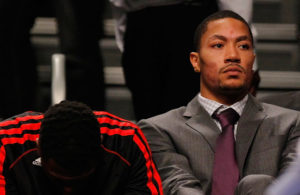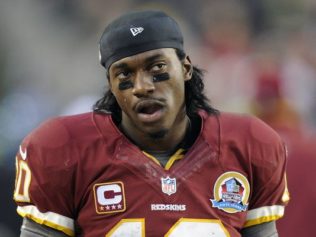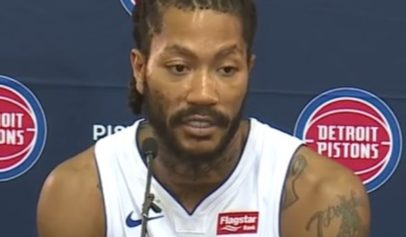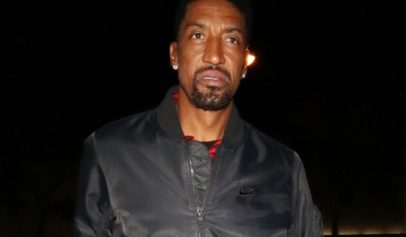
Maybe Rose does not even know what he’s doing, but he’s doing it. Owners, management, coaches and fans are always pressing athletes to return to the field of battle as soon as possible after injury. They throw around this “gladiator” ideology that is essentially a con.
And players consistently are duped, believing they are showing toughness and being a “gladiator” to play through the pain, not recognizing that most gladiators were prisoners or slaves, forced to fight or die.
Rose, somehow, gets it. He has determined that he will play only when he believes he is healthy enough to play. He’s empowered himself to govern his career, his body, his health—now and in the future.
Serious injuries in consecutive years brought him to this place. He’s afraid of another devastating injury that could threaten his career. Good thing he is because the number of people who truly care are few, particularly teams with bottom lines based on wins and his ability to help them win.
Wins mean more money, and we know how money drives most everything.
This is what his coach, Tom Thibodeaux, said yesterday when asked about Rose after he returned to action and scored 18 points in helping the Chicago Bulls win at Utah last night: “Oh I don’t know. Jesus. He’s got to get out there and play. I thought he did a lot of good things. You could see he’s not real comfortable with the ball yet, but that will come. When Derrick strings some games together, he’s going to take off. He’s got to go. That’s the bottom line. He’s got to go.”
No, he does not, not if he does not feel his body is ready. But pressure from sources like a coach—and sometimes teammates—compel a player to acquiesce. Not Rose.
What he seems to get that most athletes—especially athletes who have signed lucrative contracts, meaning they are in a position of power—don’t get is that he is in control of his life and career. The culture of sports is to always show how tough you are instead of how smart you are.
It doesn’t behoove Rose to return to the court when he has not judged that his body is prepared to take the rigors of the NBA. He was ridiculed by some fans and even players for not returning for an entire year after a torn ACL. They clowned him about not being tough and afraid to play.
Well, he should have been afraid to play. His knee was mangled, and returning before he had confidence in it to hold up would have been less than smart. And even with sitting out as long as he did, he suffered another injury just a few weeks back on the court.
He’d be silly to now play just because the team needs him to play. As much of a team game as basketball and most sports are, the element of owning your career has to come into play.
Robert Griffin III with the Washington Redskins would have been better served if he had adopted Rose’s outlook. Instead, Griffin hurried back to the field after tearing his ACL, skipped the exhibition season and started the first game of last season—just nine months after going down in a playoff game against Seattle.
He has not been the same dynamic player since returning too soon. He sustained another injury, hurried back from that and now has been so far from the player expected that he could lose his starting job or be traded—or both.
No one could have expected this, but ultimately this all stems from Griffin’s attempt to be a “gladiator” instead of empowering himself to return to play when he was totally healthy. He gave in to the nonsense about “players play” and his career now is in flux.
Rose said to The New York Times: “I know a lot of people get mad when they see me sit out. But I think a lot of people don’t understand that when I sit out, it’s not because of this year. I’m thinking about long term. I’m thinking about after I’m done with basketball, having graduations to go to, having meetings to go to.”
That’s smart and thoughtful, Gladiator-be-damned. Sadly, it is unlikely other athletes will follow suit. But we can hope.


